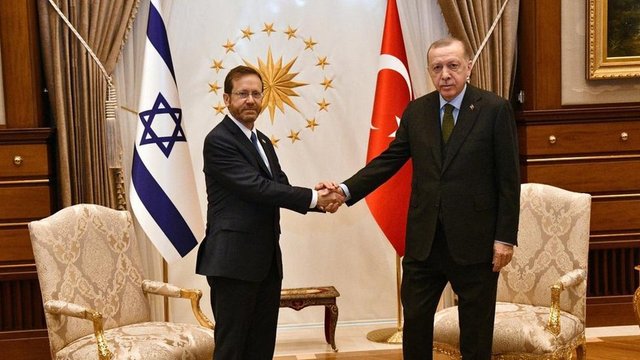Recep Tayyip Erdoğan and Israel: An Evolving Relationship
Recep Tayyip Erdoğan's approach to Israel has played a significant role in shaping Turkey's foreign policy. Throughout his tenure as Prime Minister and later as President, Turkey’s relations with Israel have fluctuated, with periods of tension and efforts at diplomatic normalization. In this article, we will explore Erdoğan's policies toward Israel and the evolution of Turkey-Israel relations.
Early Relations
When Recep Tayyip Erdoğan became Prime Minister in 2002, Turkey had relatively strong diplomatic relations with Israel. In the late 1990s, the two countries established close cooperation in security, defense, and economic sectors. However, starting in the mid-2000s, Erdoğan began adopting a more critical stance toward Israel, particularly on the issue of Palestine.
Support for Palestine and Gaza
One of the most significant factors in Erdoğan's criticism of Israel has been his staunch support for Palestine. Erdoğan strongly condemned Israel’s actions during the 2008-2009 Gaza War and made it clear that Turkey’s stance on the Palestinian issue would not be compromised. The most notable incident occurred in 2009 at the World Economic Forum in Davos, where Erdoğan had a heated exchange with then-Israeli President Shimon Peres. This public confrontation symbolized Erdoğan’s growing criticism of Israel and gained him attention both regionally and internationally.
The Mavi Marmara Crisis
The 2010 Mavi Marmara incident marked a major turning point in Turkish-Israeli relations. Israeli forces raided a Turkish flotilla attempting to deliver aid to Gaza, resulting in the deaths of nine Turkish citizens. This attack prompted Turkey to sever diplomatic ties with Israel and demand an apology. Erdoğan condemned the Israeli military action, and the event caused a significant rupture between the two nations.
Steps Toward Normalization
Despite the tensions, Erdoğan's approach to Israel began to shift in the years following the Mavi Marmara crisis. In 2013, Turkey started to show signs of wanting to repair relations. In 2016, both countries signed a deal to normalize diplomatic relations, with Israel offering an apology and agreeing to compensate the victims' families. This marked a significant shift in Erdoğan’s policy, emphasizing pragmatic cooperation in areas such as trade and energy.
Recent Developments
In recent years, Erdoğan has taken a more pragmatic approach to Israel, recognizing the importance of regional cooperation, especially in the energy sector. While the two countries have continued to maintain diplomatic ties, the issue of Palestine remains a source of occasional tension. Nevertheless, Turkey and Israel have worked together in areas like energy, particularly regarding natural gas exploration in the Eastern Mediterranean.
Conclusion
Recep Tayyip Erdoğan's policy toward Israel has undergone significant changes over time. While Turkey initially had close ties with Israel, Erdoğan’s growing focus on the Palestinian issue led to harsh criticisms of Israel. However, in recent years, Erdoğan has adopted a more pragmatic approach, focusing on areas of mutual interest, such as energy and regional security. Despite this, the Palestinian issue continues to affect Turkey-Israel relations and remains a key point of tension.
Understanding Erdoğan's approach to Israel is crucial not only for assessing bilateral relations but also for analyzing Turkey’s broader strategic objectives in the Middle East.
